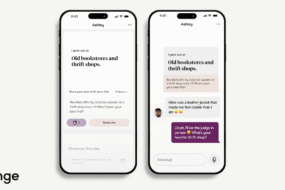
Should AI Do Everything? Exploring the Vision and Implications
In a world where technology advances at a breakneck pace, a question looms large: Should AI do everything? OpenAI, a pioneer in artificial intelligence, seems to envision a future where AI is not just a tool but an integral part of our daily lives, capable of handling tasks we once thought exclusive to humans. This raises both excitement and concern, as we grapple with the possibilities and pitfalls of such a vision.
The Vision of AI Ubiquity
OpenAI’s approach suggests that AI could, in theory, be applied to almost every domain. From solving complex scientific problems to creating art, writing code, or even assisting in medical diagnoses, the potential applications seem limitless. The idea is that by leveraging AI’s ability to process vast amounts of data, learn from it, and make decisions, we could automate and enhance numerous processes, leading to unprecedented efficiency and innovation.
One of the most compelling arguments for AI’s expansive role is its scalability. While humans are limited by time, attention, and cognitive capacity, AI can operate around the clock, handling millions of tasks simultaneously without fatigue. For instance, in customer service, AI chatbots can provide instant support to countless users at once, personalizing responses based on individual needs. In healthcare, AI systems can analyze medical records, identify patterns, and suggest treatments that might elude human doctors. The potential to improve speed, accuracy, and accessibility is immense.
Ethical and Practical Considerations
Yet, the idea of AI doing “everything” is not without challenges. One major concern is the ethical implications of relying too heavily on AI. For example, while AI can process data objectively, it is not immune to biases present in the data it’s trained on. This can lead to unfair outcomes in areas like hiring, lending, and law enforcement. Ensuring transparency, accountability, and fairness in AI decision-making becomes critical as we expand its role.
Another issue is the potential displacement of human workers. While AI might enhance certain industries, it could also automate jobs, particularly those involving repetitive tasks. This raises questions about how society will adapt, ensuring that the benefits of AI are shared equitably and that workers are retrained for new roles.
There’s also the matter of creativity and human touch. While AI can generate art, write stories, or compose music, it lacks the emotional depth and personal experience that a human creator brings. In fields like education, counseling, and the arts, the irreplaceable value of human connection cannot be overstressed. The challenge lies in finding a balance where AI complements human efforts without diminishing our unique contributions.
Navigating the Path Forward
So, should AI do everything? The answer likely lies in nuance. AI has the potential to revolutionize countless aspects of our lives, but it’s not a replacement for human ingenuity, empathy, and judgment. The key is to identify areas where AI can add the most value while preserving and enhancing the roles that inherently require a human touch.
To achieve this, we need robust frameworks for AI governance, ensuring that systems are developed and deployed responsibly. This includes investing in research to mitigate biases, establishing ethical guidelines, and fostering collaboration between AI developers and domain experts. Additionally, education and retraining programs will be essential to prepare workers for an AI-driven economy.
Conclusion
The question of whether AI should do everything is less about technical feasibility and more about societal choice. OpenAI’s vision of a world where AI is ubiquitously applied challenges us to rethink what we value in human endeavor. While AI offers remarkable opportunities for progress, the true measure of its success will lie in how well it serves humanity—enhancing our capabilities without eroding what makes us uniquely human. As we move forward, the focus should be on harnessing AI’s power thoughtfully, ensuring that it empowers us rather than overshadowing the qualities that define us. The future of AI is not about replacing humans but about creating a world where both humans and AI thrive together.







No Comments